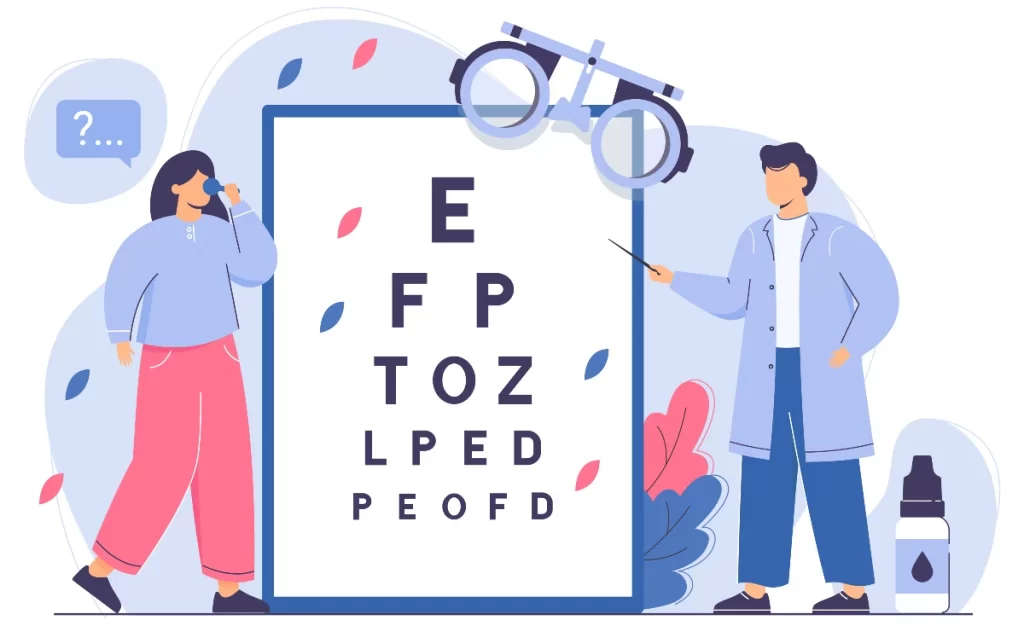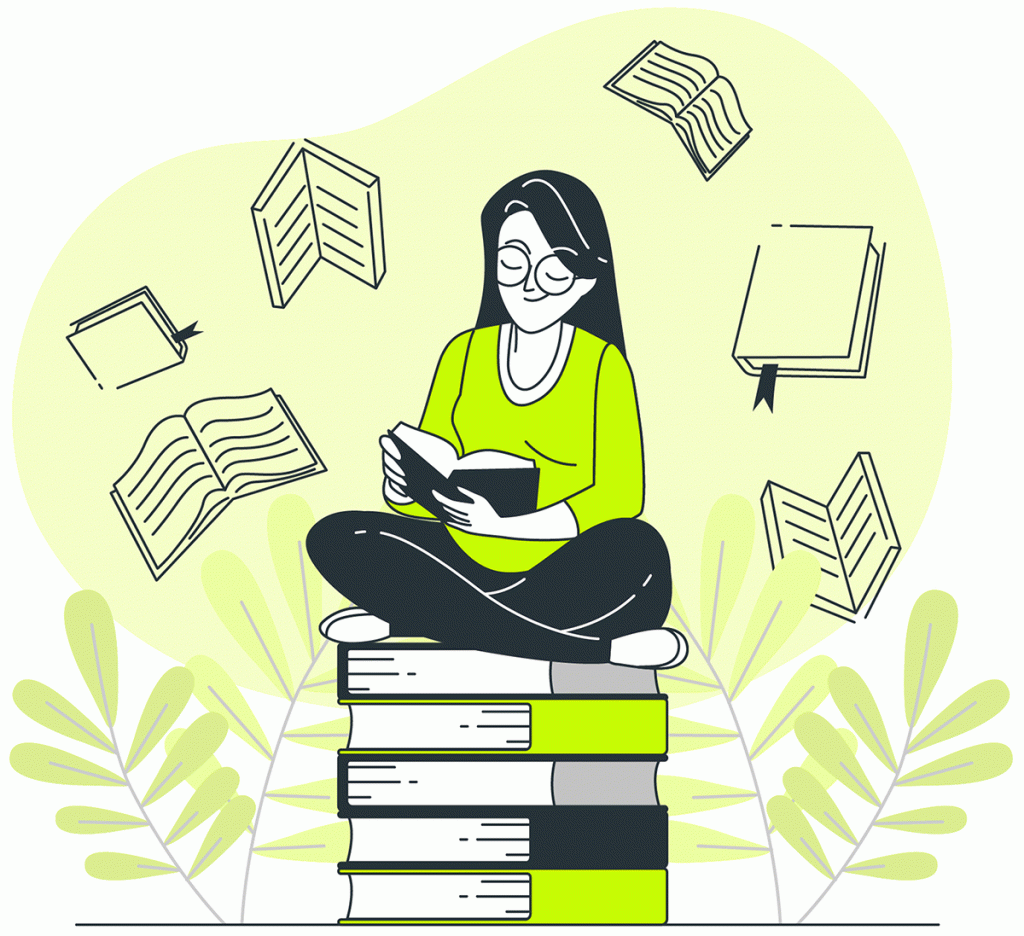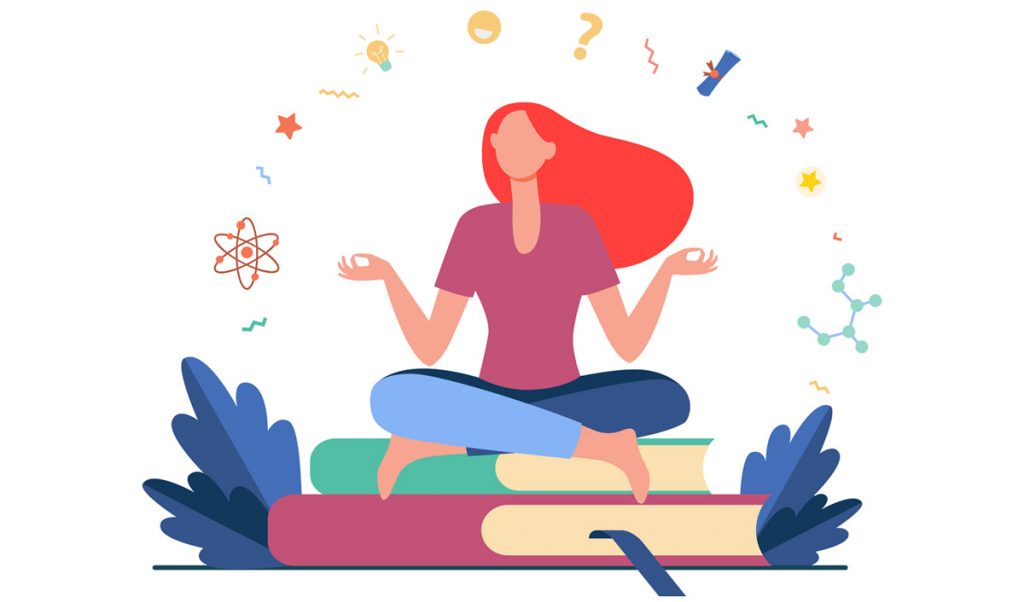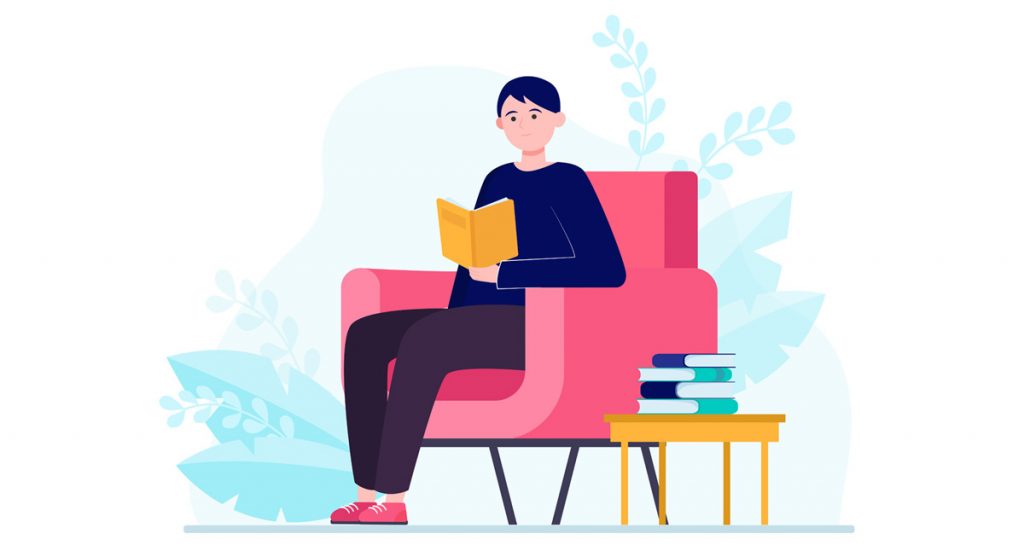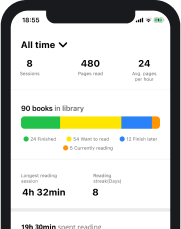As book lovers, we take great pleasure in spending hour after hour just sitting around with a nice book to read and turning page after page. Here at Basmo, we believe there is literally no bigger pleasure than the one you get out of a good reading session with a book you can’t seem to bring yourself to put down.
As much as we love reading and even though sometimes we feel like we can go on forever or at least until the book is finished, there are occasions when our bodies start sending us signals that maybe we should take a break. And as much as we might hate taking breaks just when the action is getting good, our eyes are the ones usually pulling the first warning signs.
This leads us to wonder, is reading bad for your eyes? Let’s find out.
Can reading cause any damage to your eyes?
There are many myths surrounding our eyesight and reading. One of them is that reading too much will eventually wear out your eyes, causing you to start having problems with your vision.
Luckily, this myth has been debunked and there is absolutely no evidence whatsoever that reading can have a negative impact on your eyesight. While there’s no doubt that reading can affect our eyes to a certain extent, especially during prolonged reading sessions and under certain environmental conditions, no permanent damage will ever be done to our eyesight through reading.
Eye problems caused by excessive reading or reading in inappropriate conditions are not uncommon and we are well aware of that here at Basmo. And while we understand that from having a bit of discomfort to wondering “is reading bad for your eyes?” is just a step, the answer is a clear no.
Give Your Reading Experience
An Extra Boost With Basmo
Track the books you read, monitor the time you spend reading and keep notes on your reading habits and how it makes you feel. You can set yourself targets for the time you spend reading and you can get notified whenever you’re behind on your reading time.
Most commonly asked questions about reading affecting eyes?
That being said, it’s not unlikely for you to experience some discomfort in your eyes when reading for long periods of time, but there are many questions that get asked quite frequently. And because we love reading as much as you do and we want you to have all the necessary information, we will tackle them all so you don’t have to find any answers the hard way.
Is reading in the dark bad for your eyes?
Well, it’s definitely not good. There are certain risks you are taking whenever you spend a lot of time reading in a poorly lit room. Our eyes need light to absorb information, to focus easily on the stuff we need them the focus on. A lack of light makes everything more difficult for the eyes. With dilated pupils, struggling to find enough contrast to perceive the information, and with a difficulty focusing, our eyes are going to experience some discomfort reading in the dark.
That means that eye fatigue is going to settle in a lot quicker than it normally would and the eye muscles are going to make more of an effort to focus. In the end, this will lead to itchy eyes, discomfort, and even headaches.
Is reading at night bad for your eyes?
Generally speaking, reading at night shouldn’t have a negative impact on your eyes. But there are a couple of conditions. You should always make sure to do your reading in a well-lit room, that you don’t read lying in bed (or if you do, make sure to choose a correct reading position), and you should make sure that all the fatigue you accumulated throughout the day isn’t going to affect your reading performance.
As long as you follow a couple of rules, reading at night is not going to be problematic, not even in the slightest.
Is reading by candlelight bad for your eyes?
Reading by candlelight is also not recommended. As I mentioned above, reading in a poorly lit room is not ideal for your eyes. Candles do lit up a room with a pleasant, warm light, but it is usually not enough for a good reading session.
You could get tired a lot quicker than you normally would, and on top of this, you could experience some discomfort in your eyes. Your eye muscles get tired quicker, which can cause headaches among other things.
Not only that but candlelight is universally recognized as a calming and effective sleeping aid. Chances are your reading sessions are going to be cut short by you falling asleep long before you can experience any eye discomfort.
Do reading glasses hurt your eyes?
In short, no. Reading glasses have a beneficial role, especially as we age and our eyesight gets slightly worse. Reading with glasses on can decrease the strain we put on our eyes, it can make focusing easier and minimizes the effort our eyes need to make in order to actually allow us to read.
The problems can occur whenever we use the wrong glasses. If our prescription is not correct and the glasses we get are not perfectly fitted to complement our vision, there are some things that can and will go wrong.
The wrong glasses will have an effect that is the exact opposite of the one we are wishing for. They will put more strain on the eyes, will make it even harder for them to focus, and will speed up the onset and symptoms of fatigue. Wearing the wrong glasses can result in pretty bad headaches.
Is reading on a tablet bad for your eyes?
There is a very easy, straightforward, and clear answer to this question: Yes! Reading on any mobile device for extended periods of time will expose you to a lot more blue light than you might think. The negative effects of blue light on our eyes, sleep patterns, and general well-being have been discussed at length in the scientific community.
Blue light puts an unnecessary strain on our eyes since they are unable to filter out enough of the harmful lightwaves. While no permanent damage has ever been reported from overexposure to blue light, the truth is that you should avoid reading e-books on any kind of mobile device with an LED screen.
Is reading on your phone bad for your eyes?
Just as for tablets, reading on your phone is not the best idea. On top of the fact that you are exposing yourself to a lot of blue light, the writing on your phone’s screen is usually going to be somewhat smaller than on a tablet, because nobody wants to scroll every couple of seconds just to get to the next part of the text.
Reading e-books on your phone is usually not recommended, even though no permanent damage will be done to your eyes or vision.
Is reading on a laptop bad for your eyes?
Even though it isn’t as bad as reading on your phone or tablet, reading books on your laptop is still not a very good idea. You are going to expose your eyes to a significant amount of blue light, and the brightness of the screen is going to have an impact on how your eyes focus and are able to track the information you are reading.
While it is definitely not going to be a problem for your eyes if your reading session is not too long, spending hours reading books on your laptop is almost guaranteed to cause some eye discomfort.
Is reading on a kindle bad for your eyes?
No. Reading on kindle is very safe for your eyes. The device has been purposefully designed to allow users to spend hours reading without experiencing any levels of discomfort. The screen shares a couple of similarities with the regular paper we are used to do our reading on and even if you choose a Kindle version with a backlit screen, you are still going to enjoy a very pleasurable reading experience, with minimum impact on your eyes.
Is reading in the car bad for your eyes?
Reading in the car may not be the best idea, but not because it could cause any damage to your eyes. Your eyes do suffer a bit if you are reading in a moving car that is being driven on a winding road mainly because they will need to work harder to focus and move from one line to another.
The bigger problem with reading in a moving car is that you could get car sick quite quickly. Luckily for you, we know all about that and we even prepared a quite interesting material on how to avoid getting sick when reading in a moving car.
Is reading too much bad for your eyes?
Extended reading sessions can be tough on your eyes. Excessive reading is known to cause certain eye problems, but nothing that cannot be miraculously cured with a good night’s sleep or even just a break.
Reading in itself is a rather intense experience for your eyes and your brain. Your eyes do their part allowing information to pass through, and the brain is responsible for decoding it and making sense of it.
That being said, long reading sessions can leave you with several small issues. For starters, your eyes will get tired, which can cause them to have a hard time finding the right focus, to get dry and itchy, or even to cause you rather terrible headaches.
One other thing to keep in mind is that we tend to disrupt our blinking rhythm when reading, especially if we do it for a long time. This can cause our eyes to get dry, which leads to discomfort, itchiness, or even pain.
Is lying down and reading bad for your eyes?
Generally, it is recommended that you read in an upright position. When you read lying down, you will have a tendency to keep the book closer to your eyes than you might need to and you will also keep it at an awkward angle for your eyes to focus at.
If you absolutely need to read in your bed, you can do it sitting up, with your back rested comfortably against some pillows. That way you will read in a more comfortable position, and you will avoid straining your eyes, back, or neck.
Does reading small text hurt your eyes?
No, there is no evidence to support the claim that reading small text is harmful to your eyes. The only thing that is likely to happen is that you are going to experience fatigue quicker if you read small text. That’s simply because the effort is going to be considerably bigger for your eyes than when reading text in a comfortable font size.
As I already mentioned, fatigue usually manifests itself through itchy eyes, an inability to focus, and sometimes watering eyes.
Is reading good for your eyes?
One thing we need to understand about our eyes is that they function the exact same way regardless of the activity we are performing. Yes, reading may be somewhat more challenging as an activity than looking out the window, but that doesn’t change the way our eyes operate. You might be surprised, but our eyes are just as active while we sleep as they are during the day.
So reading, in general, is neither good nor bad for your eyes. Reading is just a task that the eyes are more than prepared to perform. How you read, how small the text is, how well-lit the room is, at what angle you do your reading, and from which position, all affect the experience to a certain extent. But no, reading in itself isn’t damaging or improving your sight in the long run.
How to ensure that your eyes aren’t affected by your reading
As you can see, reading can be rather taxing on your eyes. Luckily for you, there are solutions, and we know just the right ones for you.
Cut reading sessions short, take breaks
The most common problems come from overextended reading sessions. While it’s perfectly understandable why you would like to spend a couple of good hours reading every day, there are some adjustments that you should make in order to avoid any eye problems.
Even though we are all different, it is agreed in the scientific community that one hour of reading in one sitting or four hours overall in a day is too much reading. That being said, in order to avoid discomfort in your eyes, you should take breaks at least once every 40-50 minutes to give your eyes a chance to take a breather.
On top of this, you should avoid spending more than 4 hours per day reading.
Schedule your reading sessions in the morning
Fatigue, reading lying down, and poor lighting all contribute to the eye problems reading can cause. That is why it is usually recommended to try and do your reading in the morning. You are well rested, you are less likely to be inclined to read lying down, and the lighting is ideal.
To learn the habit of reading in the morning, you can use Basmo, our reading tracking app.
It comes with a built-in scheduler for your reading sessions and it is very easy to use. You just need to select the days you want to do your reading, and you can even select a different time every day. The app is going to remind you of all your upcoming reading sessions as they are about to start, so you won’t miss out on any of them.
Keep track of how much reading you do every day
On top of being the perfect tool for creating and maintaining a reading schedule, Basmo is also a great reading tracker. All your reading sessions are recorded and timed, your reading speed is measured, and you get a bunch of interesting stats and information about your reading habits.
Use Basmo to time your reading sessions and make sure to take breaks often enough, and also to make sure that you don’t read for too long in a single day.
Final thoughts
Even though it is impossible for reading to ever cause you any permanent eye damage, there are still things to consider if you want to avoid eye problems and discomfort. Now that you have all the relevant information and complete answers to the most frequently asked questions about the effect reading has on your eyes, use Basmo to make informed decisions every day.
Image by redgreystock on Freepik
